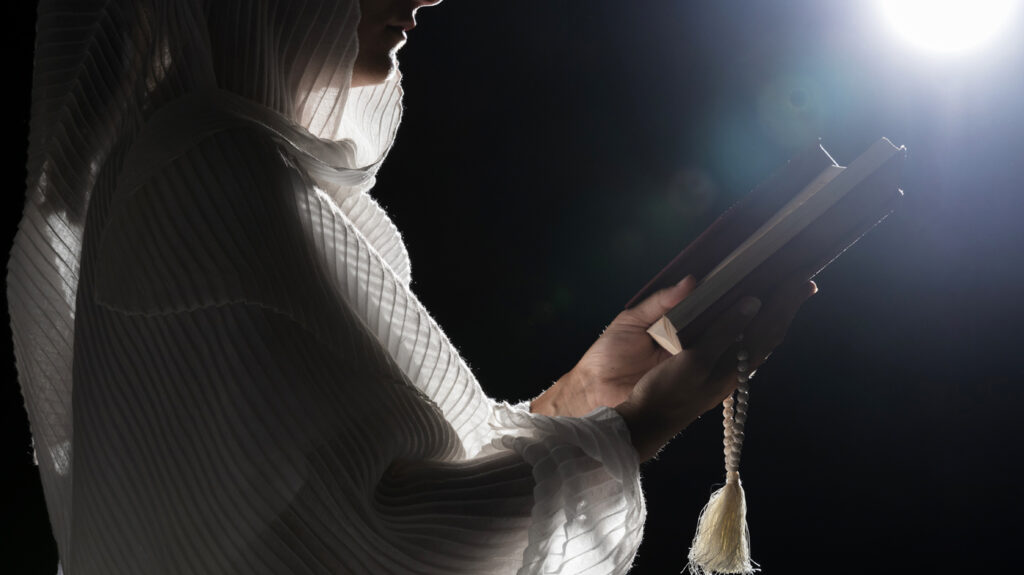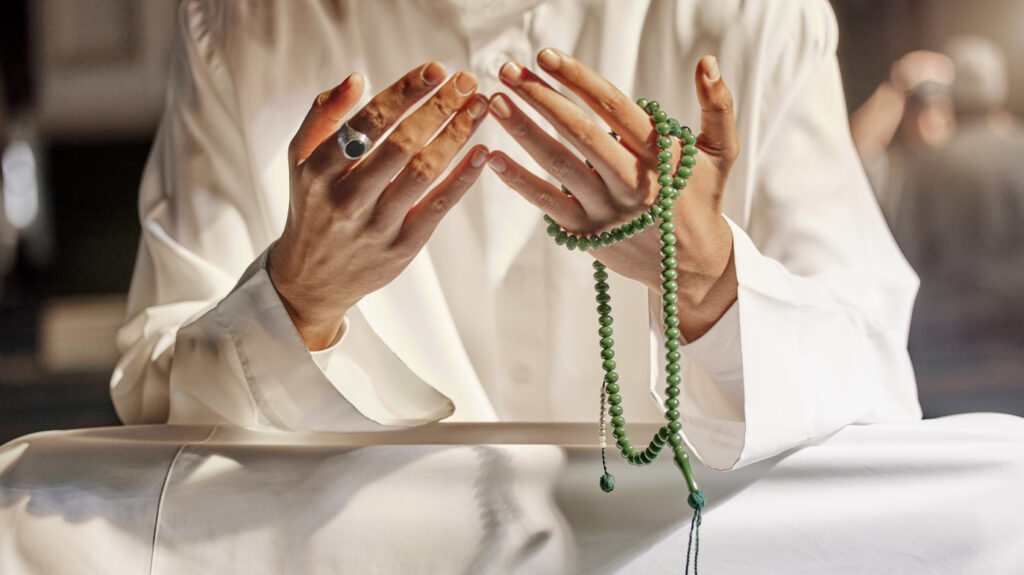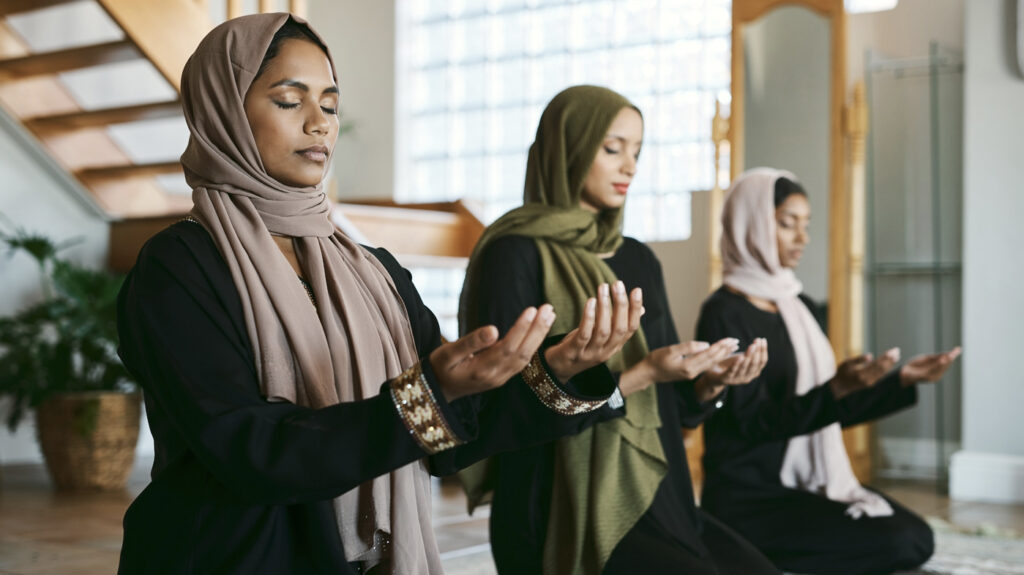
Muharram, the first month of the Islamic lunar calendar, unites all Muslims, emphasizing shared values and a sense of community. It is considered one of the four sacred months in Islam, a period when warfare and conflict are traditionally forbidden, promoting peace and sanctity. Muharram holds profound religious significance for Sunni and Shia Muslims, fostering a sense of commonality and understanding.
In 2024, Muharram begins on Sunday 7th July 2024.
The month of Muharram is a time of reflection, remembrance, and mourning, marking historical events that have shaped Islamic history and identity. For Sunni Muslims, Muharram is significant because the Day of Ashura, the 10th day of the month, is a momentous occasion commemorating the day when Moses and the Israelites were delivered from Pharaoh’s tyranny by the parting of the Red Sea. This event is a powerful symbol of divine intervention and salvation, celebrated with fasting and prayer. Some Sunni traditions also believe that Ashura is the day when Noah’s Ark came to rest on Mount Ararat, marking the end of the flood.
For Shia Muslims, however, Muharram culminates in the observance of Ashura. This day commemorates the martyrdom of Husayn ibn Ali, the grandson of the Prophet Muhammad, in the Battle of Karbala in 680 CE. The Battle of Karbala was a defining moment in Shia history, symbolizing the eternal struggle against oppression and injustice. Husayn’s stand against the tyrannical rule of Yazid, the Umayyad caliph, and his ultimate sacrifice are seen as immense bravery and faith, inspiring admiration and reverence.
What are some elements of Muharram?

Sacred Month
These four sacred months, including Muharram, hold a special status in Islam. They are considered times of peace, spirituality, and religious devotion. The Islamic calendar, or the Lunar or Hijri calendar, consists of 12 lunar months, each new month beginning upon sighting a new moon. The four sacred months, namely, Muharram, Rajab, Dhu al-Qi’dah, and Dhu al-Hijjah, are significant because they are times when warfare and conflict are traditionally forbidden, emphasizing peace and sanctity.
Day of Ashura
Despite the differences in observance, Ashura is a time for Sunni and Shia Muslims to reflect on their faith and seek spiritual renewal. Acts of charity and good deeds are standard today, as many Muslims take the opportunity to feed the poor and engage in other acts of kindness. These practices are seen as a way to seek blessings and forgiveness and emulate compassion and generosity.
Shia Observance
For Shia Muslims, Muharram, especially Ashura, marks the martyrdom of Husayn ibn Ali, the grandson of the Prophet Muhammad, in the Battle of Karbala in 680 CE. This event is pivotal in Shia Islam, symbolizing the struggle against oppression and injustice.
What are the rituals and practices during Muharram?
Fasting
Many Sunni and Shia Muslims observe fasting on Ashura, albeit with distinct emphases and practices. Sunni Muslims typically fast to commemorate Moses and the Israelites’ deliverance, viewing it as a significant event in religious history. On the other hand, Shia Muslims also fast during Ashura but place a greater emphasis on mourning rituals that commemorate Imam Hussein’s martyrdom, reflecting their reverence for his sacrifice and its profound spiritual significance. Fasting is a common practice, but the focus and how it is observed differ between the two sects.
Mourning Practices
Shia Muslims engage in a variety of mourning rituals during Ashura and the days leading up to it. These rituals include reciting elegies (marthiyas) that poignantly describe the events of Karbala and express deep sorrow for the martyrdom of Imam Hussein. Communities often organize solemn processions where mourners, dressed in black, walk through the streets, carrying banners and reciting prayers that commemorate the tragedy of Karbala.
One of the most striking rituals is the reenactment of the Battle of Karbala, where actors portray the key figures and events, vividly bringing to life the sacrifices Imam Hussein and his companions made. Additionally, some Shia Muslims engage in acts of physical expression of grief, such as self-flagellation or chest-beating (tatbir). These acts are ways to empathize with Imam Hussein’s suffering and demonstrate solidarity with his cause.
Majlis
Shia Muslims actively participate in gatherings known as majlis during the solemn period of Ashura and beyond. These gatherings serve as pivotal moments for the community to come together and commemorate Imam Hussein’s martyrdom. A ‘Majlis’ is a gathering where religious scholars or community leaders recount in detail the tragic events of Karbala, highlighting Imam Hussein’s unwavering commitment to principles of justice, sacrifice, and resistance against oppression and tyranny.
The sermons delivered during these gatherings are not mere recitations of history but poignant reflections on the enduring lessons of Karbala. They emphasize the importance of standing up for righteousness despite overwhelming odds and the timeless struggle against injustice. Through these sermons, Shia Muslims are encouraged to draw inspiration from Imam Hussein’s steadfastness and moral courage, seeking to embody these virtues.
The majlis also provide a platform for collective mourning and spiritual introspection. They foster a sense of community solidarity as participants share in the grief over Imam Hussein’s martyrdom and reaffirm their commitment to the principles he upheld. Beyond the historical narrative, these gatherings become spaces for renewing faith, strengthening bonds of brotherhood and sisterhood, and recommitting to the values of compassion, justice, and humanity exemplified by Imam Hussein and his followers at Karbala.
Significance
The observance of Muharram, particularly the solemn occasion of Ashura, holds profound significance for Muslims worldwide. It is a period marked by reflection and mourning, profound spiritual renewal, and reaffirmation of core beliefs.
For Shia Muslims, Muharram is a pivotal time reinforcing their religious identity and strengthening community bonds. It serves as a poignant reminder of the sacrifices made by Imam Hussein and his companions at the Battle of Karbala. The rituals and commemorations during this period helped Shia Muslims connect more deeply with their faith, invoking a sense of solidarity and collective purpose. By revisiting the events of Karbala through gatherings, sermons, and rituals, Shia communities are reminded of the timeless values of justice, truth, and resistance against tyranny that Imam Hussein epitomized.
Moreover, Muharram provides a platform for Shia Muslims to reflect on their own lives and actions, seeking to emulate Imam Hussein’s courage and steadfastness in standing up for what is right. It encourages introspection and personal growth, fostering a commitment to compassion, integrity, and social justice principles within the community and beyond.
In essence, Muharram, especially Ashura, is not just a historical commemoration but a transformative period that strengthens the spiritual foundation of Shia Muslims, deepens their sense of belonging to the global Muslim ummah, and reinvigorates their resolve to uphold the values that Imam Hussein sacrificed his life for. It is a time that inspires unity, resilience, and a profound dedication to pursuing justice and truth in the face of adversity.
What are the four sacred months in Islam?

Muharram
The first month of the Islamic lunar calendar. It is a significant month for reflection and mourning, especially for Shia Muslims, due to the martyrdom of Husayn ibn Ali at the Battle of Karbala.
Rajab
During Rajab, Muslims often engage in additional prayers, seeking to strengthen their connection with Allah and earn spiritual rewards. Many also observe voluntary fasting as a means of purification and seeking closeness to Allah. This fasting is seen as an opportunity to repent for past sins and seek forgiveness, thus preparing for the holy month of Ramadan, which follows shortly after.
One of the most notable events associated with Rajab is the Isra and Mi’raj, which is believed to have occurred this month. According to Islamic tradition, the Isra refers to the miraculous night journey of the Prophet Muhammad from Mecca to Jerusalem, where he led the other prophets in prayer at the Al-Aqsa Mosque. On the other hand, the Mi’raj refers to the Prophet’s ascension through the heavens, culminating in his encounter with Allah.
Muslims commemorate the events of Isra and Mi’raj as a testament to the Prophet Muhammad’s unique position as the final messenger of Allah and his intimate spiritual journey. They serve as a reminder of Allah’s power and mercy and a source of inspiration for Muslims to strive for spiritual elevation and righteousness.
Dhu al-Qi’dah
Dhu al-Qi’dah, the eleventh month of the Islamic lunar calendar, is particularly significant for Muslims in the context of pilgrimage and peace.
Historically, Dhu al-Qi’dah is recognized as one of the sacred months during which warfare and conflict were traditionally prohibited in Arabia. This period of peace allowed tribes and communities to undertake journeys, trade, and other activities safely without fear of violence. This tradition of sanctity continues to influence the observance of Dhu al-Qi’dah among Muslims today, symbolizing a time of harmony and respect.
Dhu al-Qi’dah serves as a crucial preparation period for Hajj, the annual pilgrimage to the holy city of Mecca. Hajj is one of the five pillars of Islam and is a profoundly significant spiritual journey for Muslims who are physically and financially able to perform it. During Dhu al-Qi’dah, pilgrims begin to make arrangements, spiritually preparing themselves for the rites and rituals they undertake during the pilgrimage.
Dhu al-Hijjah
Dhu al-Hijjah, the twelfth and final month of the Islamic lunar calendar, is profoundly significant for Muslims worldwide, primarily because it is associated with the Hajj pilgrimage and other important religious observances.
As the month of Hajj, Dhu al-Hijjah marks a period of intense spiritual devotion and communal unity. Muslims from all corners of the globe gather in Mecca to perform the Hajj pilgrimage, one of the Five Pillars of Islam, which is a fundamental duty for physically and financially capable people. The Hajj rituals, which include circling the Kaaba, standing at Mount Arafat, and performing symbolic acts that commemorate the actions of Prophet Ibrahim and his family, serve as a profound reminder of faith, humility, and unity among believers.
The first ten days of Dhu al-Hijjah are considered particularly sacred, with the Day of Arafah as the pinnacle. On this day, pilgrims gather at Mount Arafat, engaging in prayer, supplication, and reflection, seeking Allah’s forgiveness and mercy. It is believed that sincere repentance on the Day of Arafah can lead to the forgiveness of sins and a renewal of spiritual purity.
Following the Day of Arafah is Eid al-Adha, the Festival of Sacrifice. This festival commemorates Prophet Ibrahim’s willingness to sacrifice his son Isma’il as an act of obedience to Allah’s command. This occasion emphasizes the values of faith, obedience, and selflessness, encouraging Muslims to reflect on the importance of sacrifice in their lives and communities. Families celebrate Eid al-Adha by offering prayers, sharing meals with loved ones, and distributing meat to those in need, symbolizing unity, generosity, and compassion.
These sacred months in Islam are pillars of spiritual renewal, communal solidarity, and adherence to religious principles. They encourage Muslims worldwide to embody values of peace, spirituality, and devotion throughout the year, fostering a deeper understanding and appreciation of their faith’s teachings and traditions.












